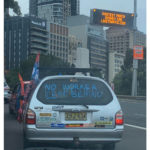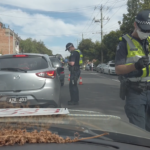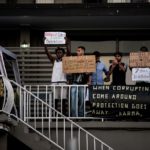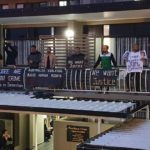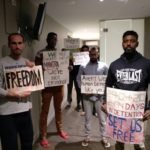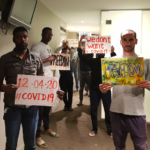End Immigration Detention: Car Convoy Protest Descends on Villawood
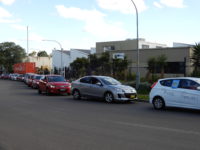
Looking back from the vehicle having just turned left at a set of traffic lights in Villawood last Saturday afternoon, the convoy of cars calling for an end to refugee detention, stretched back down Christina Road as far as the eye could see.
And as the cavalcade made its way up Birmingham Avenue, the demonstrators in the 50-odd cars covered in protest signs were confronted by a line of masked guards blocking the entrance to Sydney’s notorious Villawood Immigration Detention Centre.
Department of Home Affairs figures show that on 31 March this year, there were 427 individuals being held at Villawood, which constituted the largest single group of immigration detainees being held in any one centre during the COVID-19 pandemic.
As the nation went into lockdown, there were close to 1,400 people held in onshore detention centres. However, they weren’t permitted to take protective measures.
Indeed, detainees report that masks being worn by guards isn’t the norm, and neither is staff practising social distancing.
And while COVID-19 restrictions are now being eased, the activists gathered on Saturday at the End Detention Now Sydney Car Cavalcade rally were not only demanding the release of refugees as the virus is still a risk, but they were also calling for the end of the decades-long detention regime.
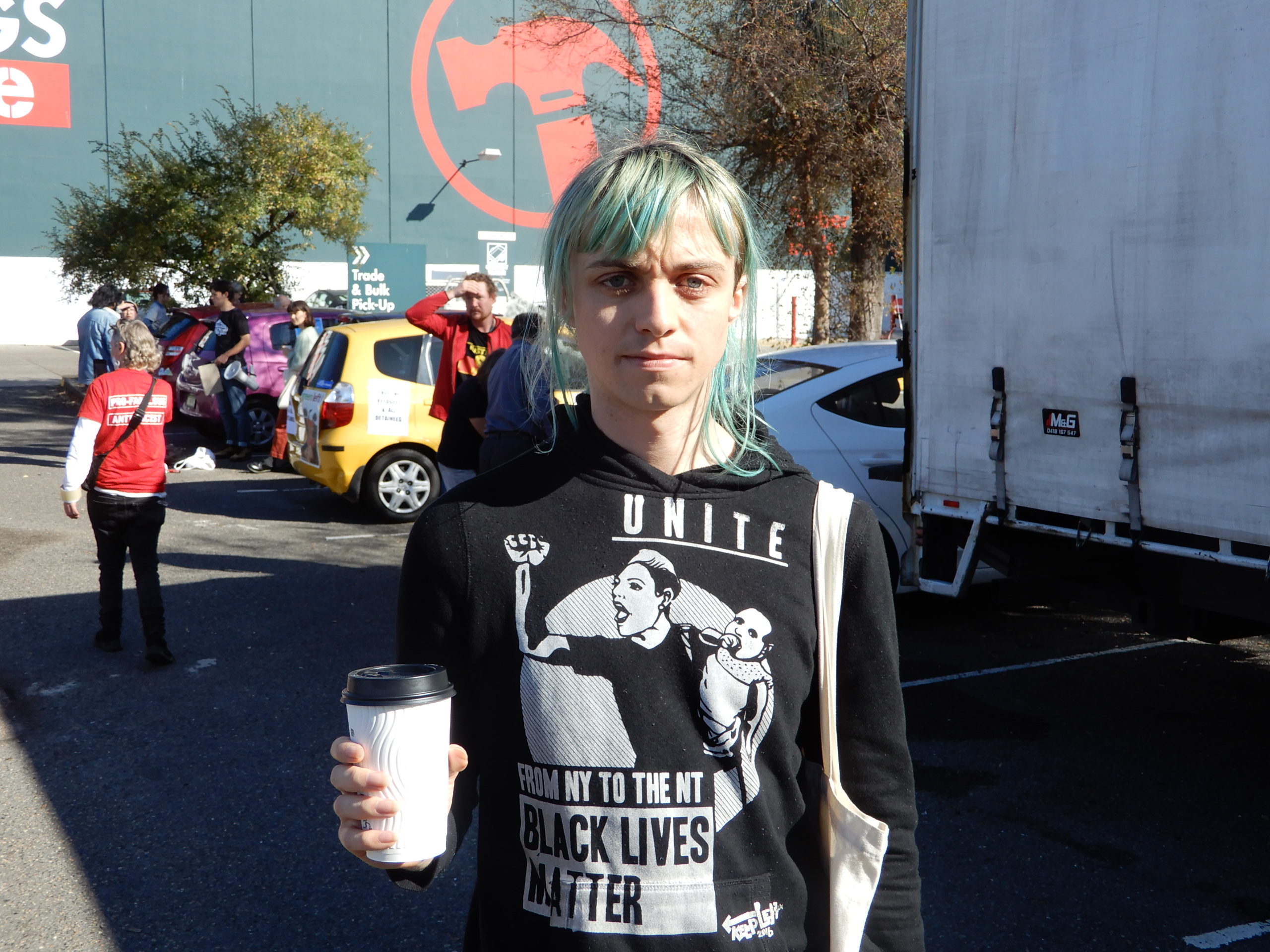
Close the camps
“We know that the conditions in Villawood aren’t safe regarding COVID-19,” said Daniel Cotton, a spokesperson for the Campus Refugee Action Collective. “The refugees and other people in detention aren’t able to socially distance.”
“And a lot of the refugees are people with pre-existing medical conditions that have been transferred from Nauru and Manus, so detention during COVID isn’t safe for them,” the student activist told Sydney Criminal Lawyers.
Cotton explained that along with the campus collective, members of Pride in Protest, the Refugee Action Collective (RAC) and ASEN (Australian Student Environment Network) helped organise the 30 May car convoy.
“But, the health risk goes beyond just COVID,” Cotton continued, and they outlined that some of those being detained in Australian facilities have actually been held in detention for up to seven years, and this is taking a grave toll on both their mental and physical health.
“This month alone, we’ve seen two refugees in Australian onshore detention centres try to take their own lives,” Cotton added. “So, there’s a health risk with COVID, but detention itself is a major health risk.”
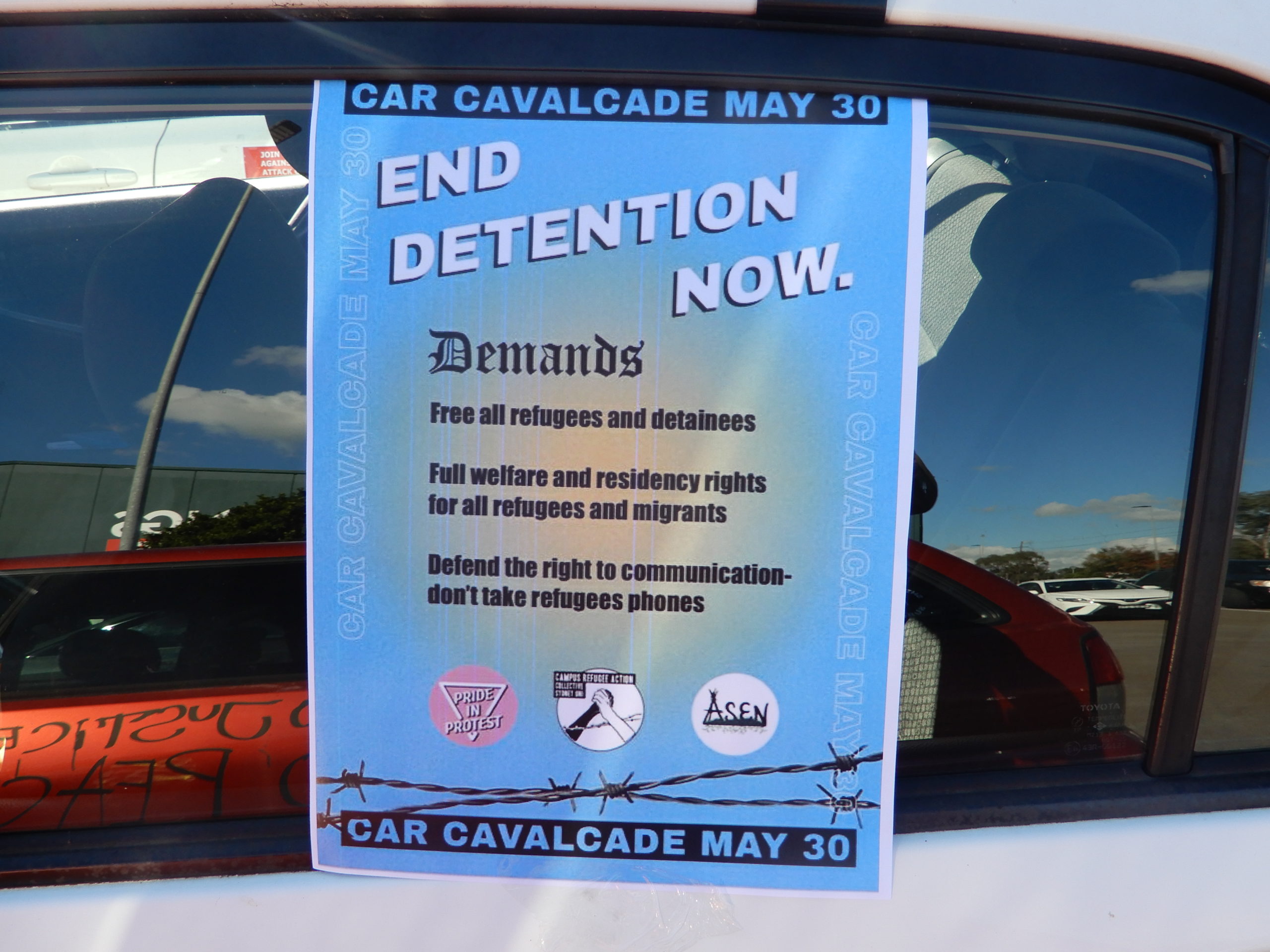
Locking up long-term residents
The protesters on Saturday were calling for the release of two groups of people currently held in immigration detention, Cotton said, those coming to Australia seeking asylum, as well as resident noncitizens slated for deportation, who are referred to as 501ers.
This second group make up close to half all immigration detainees today. They’re awaiting deportation based on character grounds under section 501 of the Migration Act 1958 (Cth).
And the number of 501ers being detained and deported has skyrocketed since December 2014.
Back then, the laws were changed so that noncitizens are automatically deported for any number of sentences amounting to at least 12 months prison time, rather than the previous 2 years that applied.
This means that increasingly long-term residents are being deported, often over multiple minor offences.
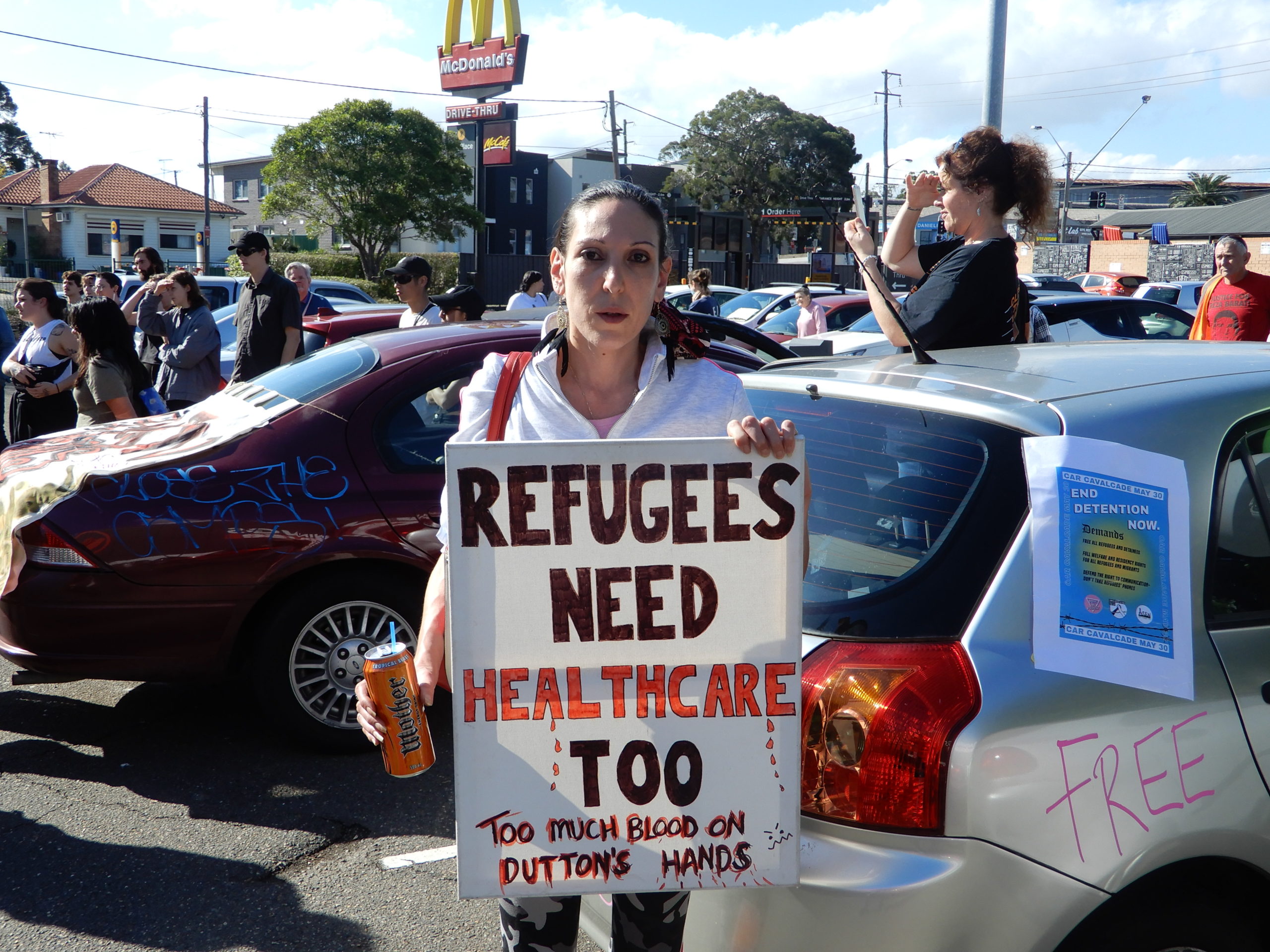
Melbourne woman Rebecca Tsoleridis was at the car convoy protest on Saturday. Her partner, Butrous Isaac Chol, is a South Sudanese man currently being held in Villawood under the 501 laws. Although, the Australian resident of 21 years has already been granted a new protection visa and shouldn’t be inside.
“I am here to represent my partner. He has been granted his visa since 4 April this year. We are just waiting for him to be released. We don’t know why he hasn’t been,” Tsoleridis explained. “They should all be set free. It’s inhumane. It is torture. They deserve a chance.”
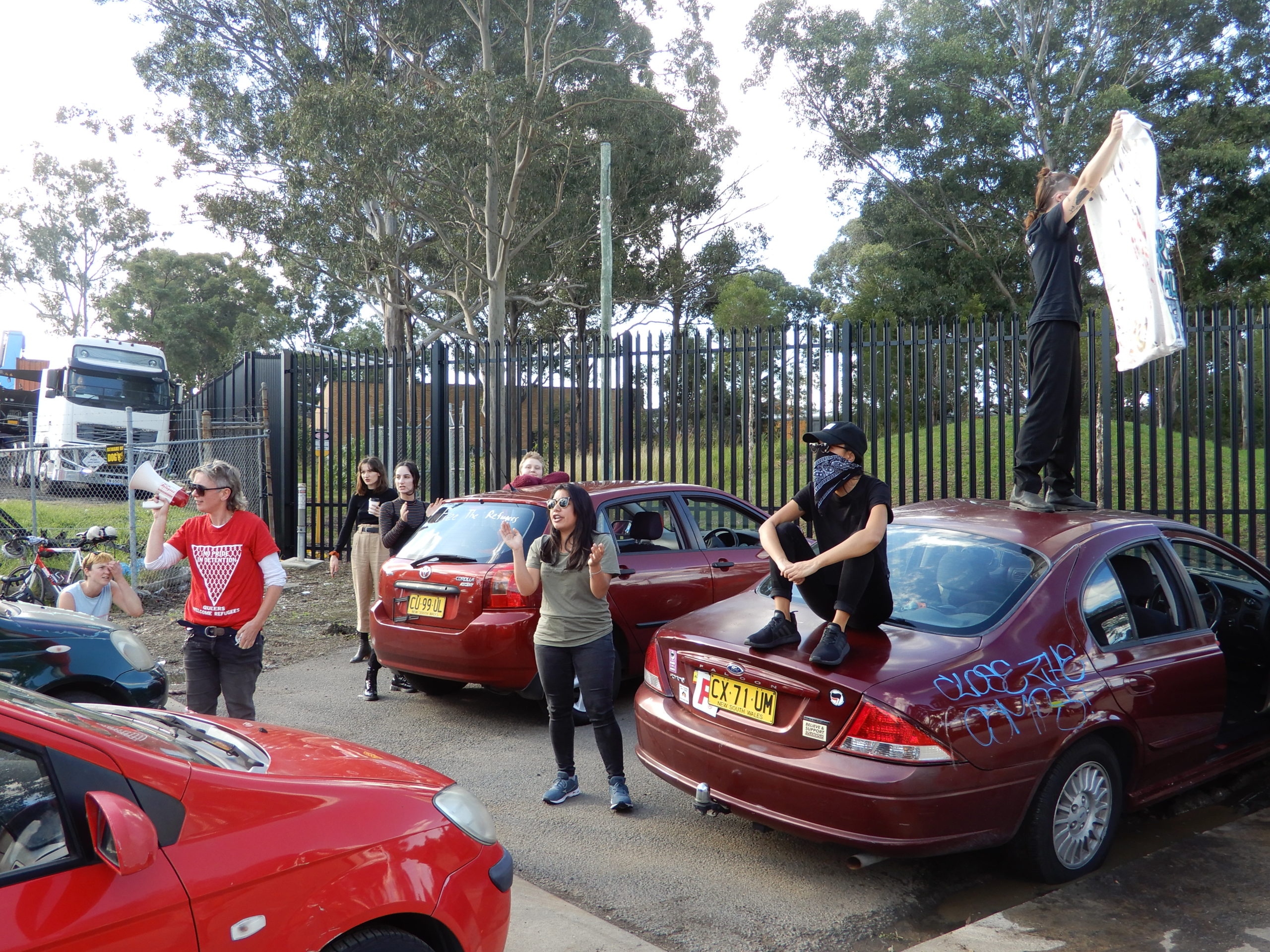
Silencing the vulnerable
“But, beyond just ignoring the health risk of COVID-19, the government is actually going further,” Cotton said in relation to a push by home affairs minister Peter Dutton to enhance the powers of guards. “The government’s conduct here is not just negligent, but it’s actually actively harmful.”
Several weeks ago, federal parliament met for three emergency sitting days to deal with matters that couldn’t wait until after the pandemic. And at that time, the home affairs minister found it necessary to introduce previously failed laws, enabling guards to seize phones from detainees.
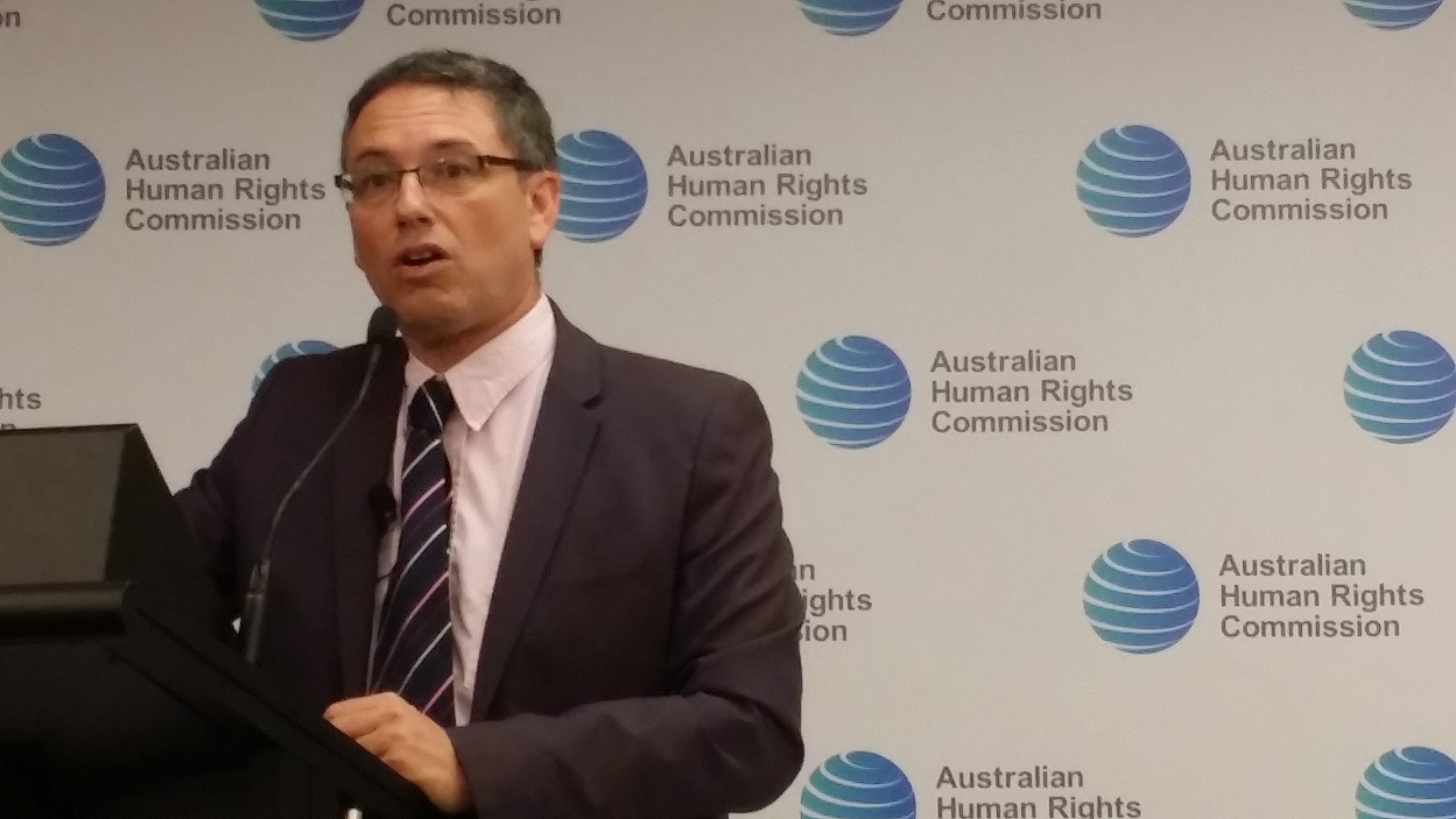
“The government claims that the use of mobile phones is linked to criminal behaviour. This is simply not the case,” National Justice Project director George Newhouse said at the time. “Phones are a lifeline to the outside world that enables individuals to maintain their sanity and communicate”.
Throughout the lockdown, there has been a renewed focus on the plight of refugees in detention and much of this exposure came from the detainees themselves via their phones. So, it seems that minister Dutton has decided this now warrants the devices being taken away.
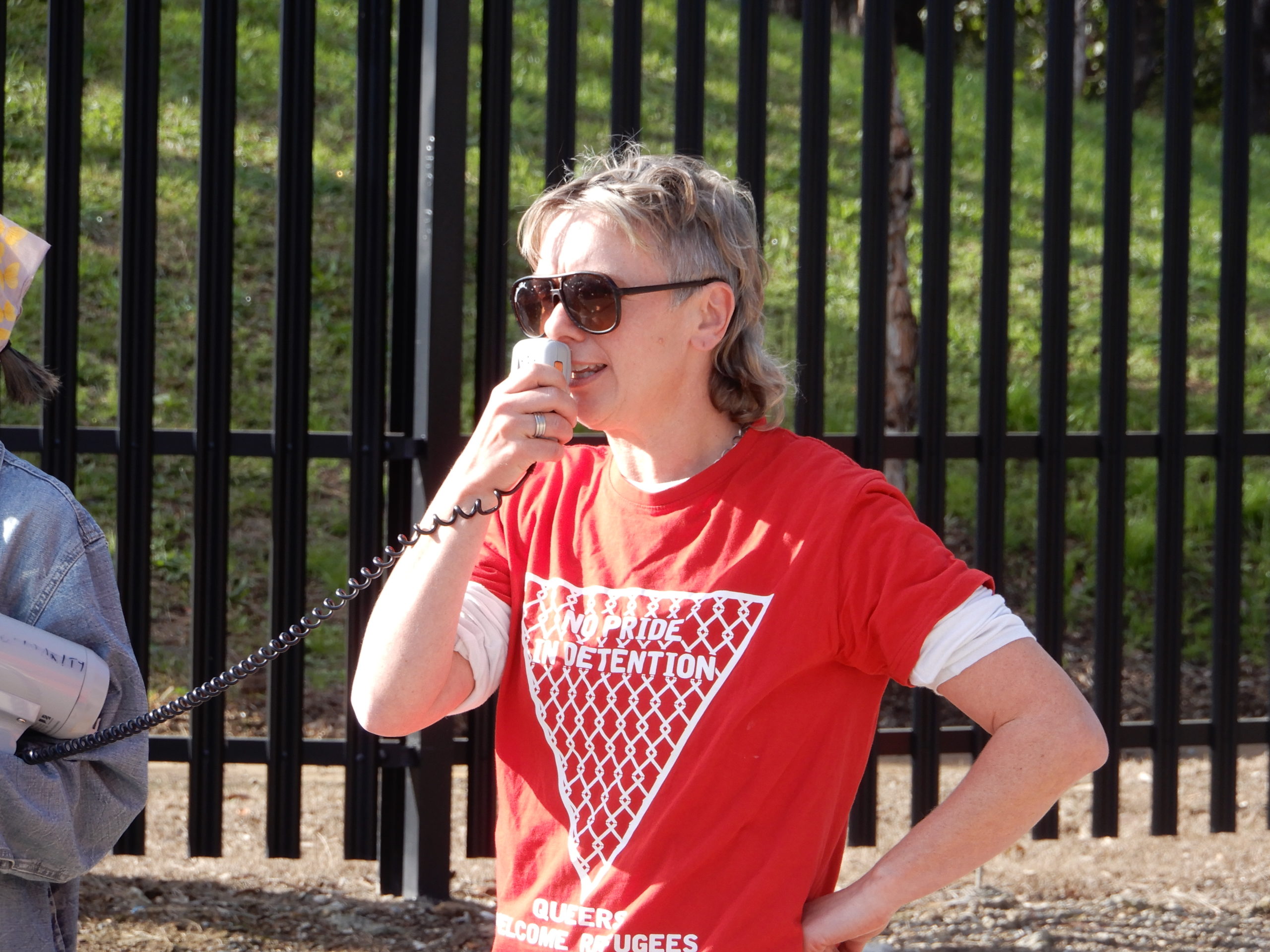
Seven years too long
“Refugee detention centres are horrendous human rights abuses in and of themselves,” Socialist Alliance member Rachel Evans said. “But, during the COVID times, they’re a health risk to the refugees and the people who lock them up.”
The long-term activist explained that the rally was the sixth car cavalcade protest held in Sydney since the lockdown kicked in. The first was organised by the May 1 Movement on 9 April, which opposed the large numbers of workers, including migrants, left out of the JobKeeper package.
Evans outlined that since 1992, successive Australian governments have been detaining refugees, who should be protected under the auspices of the 1951 UN Refugee Convention. While currently those who have been detained offshore at some time, have been locked up since 2012-13.
“The elites use a divide and rule strategy, and racism towards refugees is part of that,” Evans underscored.
“This solidifies our resolve against our real enemies, the elite: the coal and gas companies, as well as the mining moguls, that want to send us and the planet into extinction.”


